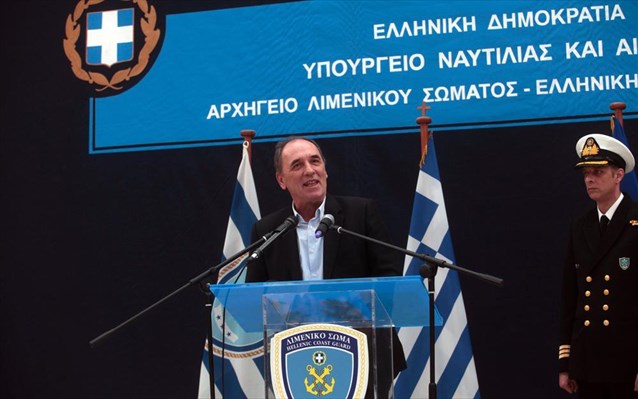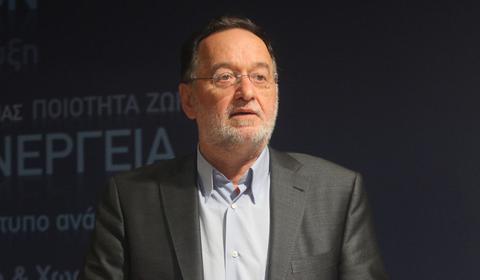photos: www.naftemporiki.gr, www.ethnos.gr
The government is embarking on closing down the privatisation agency, thus making good on its election promise to suspend the national privatisation programme.
Based on this, the finance deputy minister Nadia Valavani demanded the resignation of the agency’s president Manolis Kondilis and of its CEO Paschalis Buhoris.
The airport privatisation will be discontinued. This is what the head of the newly created super-ministry of the economy, shipping, infrastructure, transport and tourism Giorgos Stathakis has announced.

Giorgos Stathakis
During the handover ceremony in the old ministry of infrastructure and transport, Stathakis said that despite the lack of agreement in SYRIZA circles over concession and PPP projects, the large road building ones will have to be completed.
In his turn, the deputy minister responsible for infrastructure Christos Sprindzis stressed that his vision can be defined as "productive reconstruction with a focus on public infrastructure." He also added that the direction should now be different from the one followed in the last decade, and that the country needs a national plan for its productive reconstruction.
Greece's new government is preparing to cancel a plan for privatising the gas company DEPA. This is what the new energy minister Panagiotis Lafazanis told Reuters. He stressed that the 65% sale of DEPA’s capital will be annulled. "Privatising DEPA is out of the question, we won't sell it to anyone, no matter who is interested."

Panagiotis Lafazanis
The minister was more conciliatory with regard to the sale of the gas network operator DESFA. The previous government had made a deal that Azerbaijan’s state energy company SOCAR pay €400 million for it.
Lafazanis said the government was going to make up its mind only after the European commission – now investigating whether and how much the sale complies with EU competition rules – has spoken. The commission’s decision will be made within 2015. "We shall expect word from the commission before we undertake whatever," said Lafazanis.
He added that his government was against the ways of the Canadian gold mining company, which has made some of the most notorious investments in the country.
The gold mining operation in Skouries was sold to Eldorado Gold, a Vancouver-based company. This was one of the foreign investment deals, widely touted by the previous government. And this mine will be a case in point as an indicator whether and to what extent the Greek government will protect foreign investors. Eldorado Gold plans to invest $1 billion over the next five years. "We are adamantly against this investment plan," said Lafazanis and added: "We are going to plan out our next moves in addressing this issue." But he failed to mention any possible line of action the government might take.
Meanwhile, Lafazanis and DEI’s CEO Arthouros Zervos met to discuss how to undo the privatisation of the state electricity company DEI.
According to ministry sources, Lafazanis and Zervos also talked about the current situation and the prospects of the company. The question of the new management has not been mooted yet.
The privatisation plan envisaged auctioning out DEI’s transmission subsidiary as well as the sale of its shares to a strategic investor. This plan was laid down in a special law, which will now have to be amended.
According to sources, other issues were discussed at the meeting such as electricity prices for the industrial sector (the discount published last year was extended to cover this year as well, while looking for alternative measures to supply cheaper electricity to industries), as well as a price list for Greek Aluminium, which has not signed a contract with DEI for its electricity supplies.